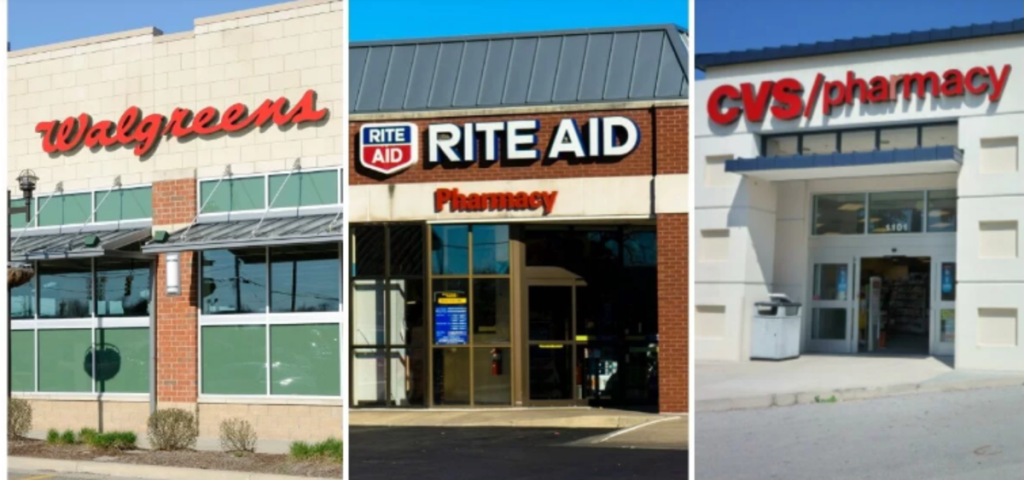In the realm of healthcare and well-being, terms like “pharmacy” and “drugstore” are often used interchangeably, but they actually represent distinct entities that play unique roles in the healthcare ecosystem. In this article, we will explore the differences between a pharmacy and a drugstore, shedding light on the essential functions and services they provide.
Pharmacy: Your Healthcare Partner
A pharmacy is a specialized healthcare facility staffed by licensed pharmacists who are trained to provide a range of essential services related to prescription medications and patient care.
1. Medication Dispensing: Pharmacies primarily focus on dispensing prescription medications. When a healthcare provider prescribes a medication, patients can take their prescription to a pharmacy to have it filled. The pharmacist ensures the medication is accurately dispensed, provides patient counseling, and may offer information about potential side effects or interactions.
2. Medication Management: Pharmacists at a pharmacy take the lead in medication management. They work with patients and healthcare providers to optimize medication regimens, ensuring that medications are taken correctly, at the right time, and in the right dosage. This is especially crucial for individuals with complex medication regimes or chronic conditions.
3. Medication Counseling: Pharmacists offer medication counseling, discussing the importance of taking prescribed medications and addressing any concerns or questions patients may have. They play a vital role in patient education and can provide advice on proper administration, potential side effects, and adherence to the treatment plan.
4. Medication Compounding: Some pharmacies have the capability to compound medications. Compounding involves customizing medications to meet individual patient needs. This is particularly valuable for patients who require specific dosage forms, ingredients, or formulations not available commercially.
5. Immunizations: Many pharmacies offer immunization services. Pharmacists can administer vaccinations, such as flu shots, shingles vaccines, and others. This accessibility makes getting essential immunizations more convenient for patients.
6. Consultation and Advice: Pharmacists serve as healthcare advisors, ready to answer questions, provide guidance, and offer solutions to common health concerns. They can recommend over-the-counter medications for minor ailments, first aid supplies, and provide suggestions for maintaining good health.

Drugstore: Convenience and More
A drugstore, on the other hand, is a retail establishment where a wide range of healthcare, personal care, and household products are available. While a drugstore typically includes a pharmacy, it offers a broader array of goods and services beyond prescription medications.
1. Retail Products: Drugstores are well-stocked with a variety of items such as over-the-counter medications, personal care products, cosmetics, toiletries, health and wellness items, and even groceries in some cases. These products are available for purchase without a prescription.
2. Convenience: Drugstores focus on providing convenience to customers. With extended hours and multiple locations, they offer accessibility and the advantage of one-stop shopping for a variety of products, including health and beauty supplies.
3. Healthcare Products: In addition to medications, drugstores carry a range of healthcare products like vitamins, supplements, medical equipment, and aids for mobility, vision, and hearing. They may also have items like braces, bandages, and compression stockings.
4. Personal Care Services: Many drugstores offer personal care services, including in-store clinics, prescription delivery, and online prescription refills. These services are aimed at providing added convenience and accessibility to healthcare.
5. Photography Services: Some drugstores have expanded to offer additional services such as photo processing, printing, and even personalized photo gifts.
6. Retail Discounts and Promotions: Drugstores frequently run promotions, discounts, and loyalty programs to attract and retain customers. Shoppers can benefit from special deals and savings on a wide range of products.
Finding the Right Balance
Both pharmacies and drugstores play essential roles in providing healthcare services and products to the public. While pharmacies are focused on medication management, prescription dispensing, and personalized counseling, drugstores offer a broader selection of retail items and convenient services.
Understanding the differences between a pharmacy and a drugstore allows individuals to make informed choices about where to obtain their healthcare products and services, depending on their unique needs and preferences. Bellamar Pharmacy bridges the gap between these two entities, combining the expertise of a traditional pharmacy with the convenience of a drugstore.



